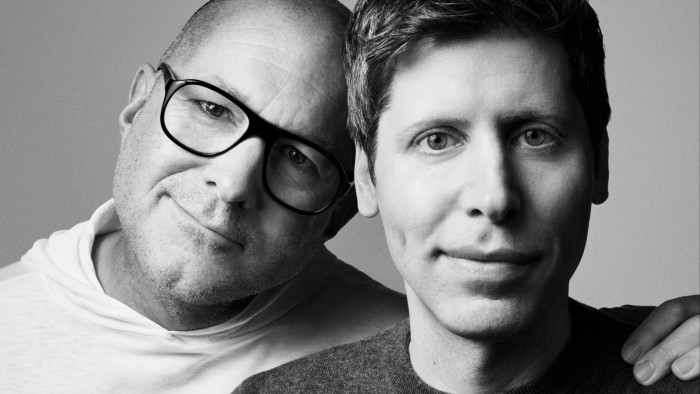Stay informed with free updates
Simply sign up to the Artificial intelligence myFT Digest — delivered directly to your inbox.
OpenAI has agreed to acquire former Apple design chief Sir Jony Ive’s hardware start-up io for $6.4bn in a bet on alternatives to the smartphone as the dominant device to access AI.
The ChatGPT maker has paid $5bn for full ownership of io, in an all-equity deal. It already had a 23 per cent stake. The 55 employees working at io will join OpenAI, but Ive will not become an employee, according to people close to the deal.
Ive, the designer behind many of Apple’s best-known products including the iPhone, left the company in 2019 after almost three decades. He will be a consultant with OpenAI as his main focus, but will still work on projects for his design company LoveFrom.
OpenAI said it aims to “create a family of products for the AGI era”, referring to artificial general intelligence, a level of AI that is similar to or surpasses most humans.
“I think we have the opportunity here to kind of completely reimagine what it means to use a computer,” OpenAI founder Sam Altman said in a video announcement.
Advances in artificial intelligence have shaken up the tech industry, with chatbots like ChatGPT threatening the dominance of traditional search engines and changing how people interact with their devices.
Ive will assume “deep creative and design responsibilities across OpenAI and io”, the company said. He and his team will draw on “decades of experience creating the world’s most iconic and category-defining products”, they added.
LoveFrom, the design studio Ive founded with former top Apple designers, which has since partnered with the likes of Ferrari, will remain an independent company.
During Ive’s time at Apple, he formed a close relationship with co-founder Steve Jobs and oversaw the rollout of the iPod, MacBook and Apple Watch. He was knighted in 2012.
Ive has kept a relatively low profile since his departure from Apple, working on a sprawling office complex in San Francisco’s Jackson Square neighbourhood.
Other companies have tried AI alternatives to the smartphone without success. Start-up Humane launched an AI “pin” in 2024. The product was not a commercial success, and the company scrapped the pin and was sold to HP earlier this year.
However, it signalled how companies are exploring ways to move beyond typing on smartphones towards voice-activated generative AI voice assistants.
OpenAI has a high-profile partnership with Apple, which integrated ChatGPT into its voice assistant and writing tools in December as part of an artificial intelligence overhaul of its products dubbed “Apple Intelligence”.
Recommended
Apple is pursuing an AI overhaul of its own voice assistant, Siri, although it has experienced setbacks with delays to planned features.
Eddy Cue, Apple’s head of services, told a US court earlier this month that “you may not need an iPhone 10 years from now, as crazy as it sounds”.
One person close to OpenAI said it was working on “something totally different [to a phone] . . . a completely new surface”.
Ive said in an interview earlier this month that he was working on the “unintended consequences” of the iPhone, citing potentially adverse effects that smartphones and social media have on users.


